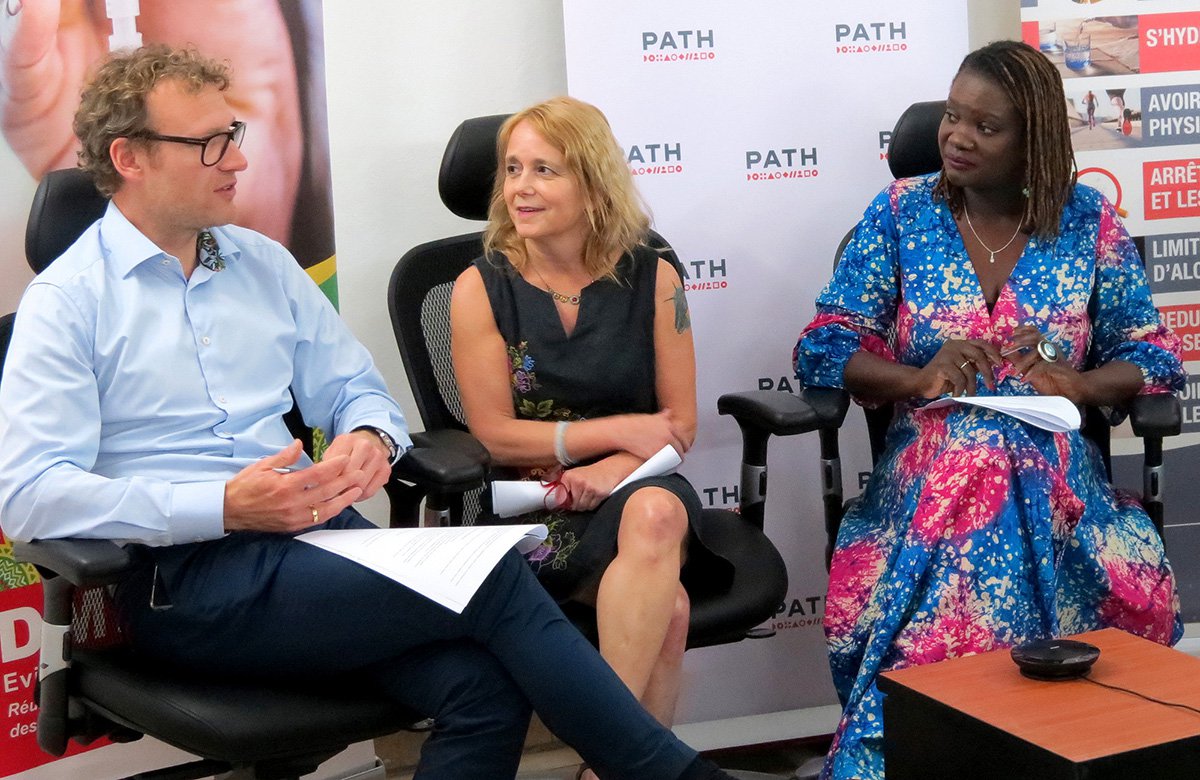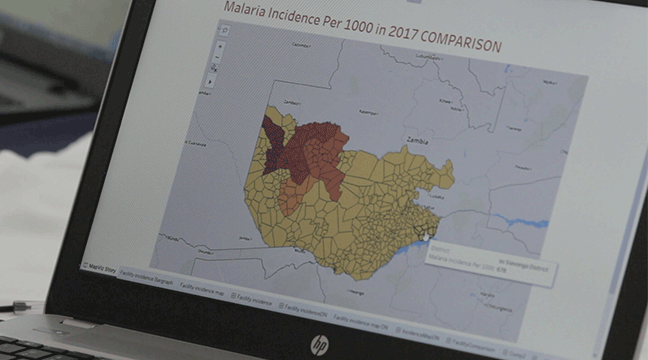As the outbreak of COVID-19 spreads, countries and health care providers around the world are rallying to protect their communities. In this all-hands-on-deck situation, questions naturally arise about how to best understand the virus and manage the response.
For answers, we turn to PATH’s director of global health security, Dr. Linda Venczel. She is a senior epidemiologist with more than 25 years of experience controlling infectious diseases in resource-limited settings around the world. Her expertise includes establishment of new, community-based surveillance systems; innovative laboratory and diagnostic methods; and the use of data for modeling disease burden and the potential impact of proposed interventions.
Q: What part does PATH play in responding to the COVID-19 outbreak?
A: Our global health security experts are monitoring it closely and supporting local and national governments as they prepare for the virus to reach their communities.
For instance, our Vietnam office staff are leveraging their technical expertise to support the Ministry of Health’s data collection and visualization efforts—important work that speeds disease reporting. And in Tanzania, PATH staff have identified six high-risk regions and supported the Ministry of Health to draft a COVID-19 contingency plan. They continue screening and surveillance of people arriving from outside the country.
But the real work began long before “coronavirus” became a household word. PATH works year-round to strengthen health systems so that when we see outbreaks like this, countries are prepared to respond. We don’t know what the future holds for this epidemic, but one thing is certain—places with weaker health systems will be hit hardest.

Dr. Linda Venczel (center), PATH's director of global health security, met with PATH's president and CEO Nikolaj Gilbert and Senegal country director Aminatou Sar on a recent visit to Senegal. Photo: PATH.
Q: What is PATH’s approach for strengthening health systems?
A: It is essential for health systems to be able to identify, track, and respond to an outbreak. We think about this in terms of diagnostics (labs, sample collections, and rapid point-of-care diagnostics) as well as surveillance systems that exist at the individual- and community-reporting level, all the way to the district, provincial, and national levels.
When these systems are integrated, governments can share and analyze reliable data from clinical settings, laboratories where testing occurs, and emergency operations centers.
Importantly, the same systems that governments and health systems use to track well-known diseases, like measles and cholera, can also track emerging infectious diseases like COVID-19, if they are built with adaptability in mind.

Government health workers in Zambia track malaria in real time with digital dashboards. Video: PATH/Mapbox.
Q: What can we expect as far as future outbreaks of infectious disease?
A: We are seeing the emergence and re-emergence of known and novel diseases today more than we have seen in previous years because the global community is increasingly connected. Both animals and human beings move more frequently due to changes in their environment, climate, and other cultural and social factors. Also, animals and humans are coming into contact with each other more often due to these factors.
The importance of global health security and a “one health approach” is paramount to addressing and preventing disease emergence and outbreaks. This approach recognizes that the health of people is connected to the health of animals and the environment that we share.
Q: How worried should we be about a global pandemic?
A: The risk is very real. Many countries lack the health systems they need to withstand an outbreak of this magnitude. Infectious disease doesn’t respect national and regional borders, so we must work together to bolster response capabilities where needed.
In the last decade, governments around the world have taken great steps toward outbreak prevention and response. Responding to COVID-19 will require partnership from the national to local levels.
While we feel confident that we have made many strides in the past five to ten years to prepare for a threat like COVID-19, the disease is evolving and unpredictable. We need to fortify our efforts, but we face dwindling resources. To keep this work sustainable in an escalating environment, we will need more funding and a steadfast commitment from partners.

Dr. Eteni Longondo, minister of health for the Democratic Republic of the Congo, recently met in Seattle with staff from PATH and the University of Washington to discuss emergency preparedness, health systems strengthening, and other topics. Photo: PATH.
Q: How can PATH be more effective at combatting infectious disease outbreaks?
A: We’re grateful that many of our funders, including the Bill & Melinda Gates Foundation, US Agency for International Development, and US Centers for Disease Control and Prevention, have prioritized infectious disease outbreak prevention, detection, and response. Without their support, we would not be able to do the important work we do.
In global disease outbreaks such as the one we are experiencing with COVID-19, we could be more effective if we had additional unrestricted (flexible) funds to prevent and detect these outbreaks as efficiently as possible and save lives.
We need to stop the cycle of “panic and neglect” for funding outbreak response. Every time there is an outbreak, governments, philanthropists, and corporations put billions of dollars into a response. But when the outbreak ends, the funding dries up. Strengthening surveillance systems requires long-term investments, and vaccine development can take years or decades.
PATH responds to COVID-19
Our roundup page give a more complete picture of our efforts to respond to novel coronavirus around the world.



